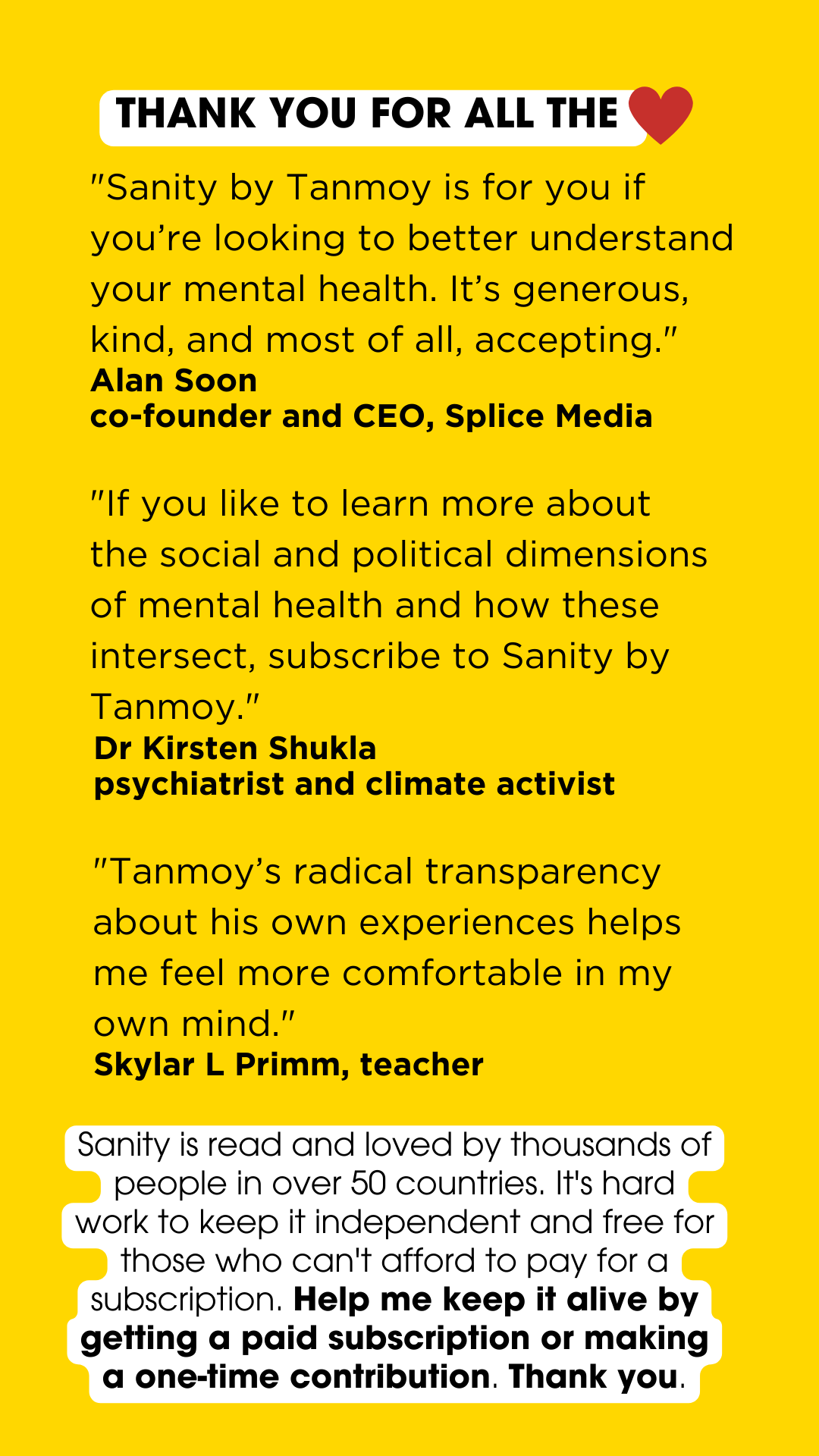
🗝️ Sanity Classics: Has trauma shaped your career?
What your relationship with work could reveal about your childhood.

Gabor Maté's grandparents were killed in Auschwitz when he was an infant. His father was shipped off to a labour camp. His mother gave him away to a stranger in the street for a few weeks to save him from the Nazis.
"As an adult, I know what my mother did was the greatest act of love," the Hungarian physician and trauma expert says in multiple YouTube videos that I have watched dozens of times. "But how do you think a baby would react to it? What else can a baby think except 'I am being rejected and abandoned, I am not loved, I am not good enough'?"
The memory of feeling that he wasn't good enough, that he was somehow responsible for his mother's suffering in the very first year of his life, hasn't left Maté, now the 79-year-old bestselling author of books such as When the Body Says No: the Cost of Hidden Stress and The Myth of Normal: Trauma, Illness and Healing in a Toxic Culture.
In one video, he tells the story of a session of psychedelic-assisted therapy when he experienced all over again what had happened to him as a child. "I knew this was a therapy session. I knew my therapist's name. I knew I was 78 years old and who I was in the world. But at the same time, I went back to being that infant and now the therapist was my mother. I began to cry, and I said, 'I am so sorry mother that I made your life so difficult.' Because that's my unconscious memory of my sense of self. That my mother's unhappiness was all my fault."


